What makes a good teacher in the 21st century?

Over the next two months, The Daily Star will publish op-eds on six themes representing some of the most basic and important issues of higher education in Bangladesh. These articles will be written by four educators – professionals who have vast experience in learning, teaching, publishing, and managing various aspects of a university both in Bangladesh and the United States.
Despite some significant achievements in Bangladesh over the past few decades, some of the major problems that plague our education system make the graduates of our higher educational institutions some of the least prepared for the new age. The purpose of this project is to highlight the problems of low quality of education, lack of qualified teachers, lack of funding, low literacy rates, gender disparities, inadequate teacher training, limited use of technology, and limited access to higher education compared to the need. The authors will also attempt to help us look for solutions.
The Bangladesh government with Prime Minister Sheikh Hasina at its helm has launched a major initiative to turn the recent technological achievements of our nation ("Digital Bangladesh") into its next logical step – "Smart Bangladesh." This is a laudable step. However, what needs to happen in order for this lofty goal to become a reality is precisely what this set of articles will be focusing on: recalibrate our education system to make it robust, responsive, vibrant and creative, with the goal of turning our workforce into a capable generation of Bangladeshis who can successfully participate in the fast-moving global economy. We certainly need to celebrate the spectacular economic growth of our nation over the past few decades spearheaded by the current government, but we must also recognise that unless we prepare our workforce for the 21st century, we'll risk falling behind in the race.
Another goal of this project is to create various forms of interactions between the academics, students, parents, administrators, and other stakeholders via live discussions, online seminars, on-campus discussions, and written correspondence to foster awareness and to encourage the stakeholders to assist with the government's goal of becoming a "smart" nation. The authors will themselves interact via all forms of social media to generate enough interest to come up with ideas to transform higher education.
The Daily Star welcomes and encourages any and all thoughts, ideas and recommendations from our respected readers.
MAHFUZ ANAM
Editor and publisher, The Daily Star
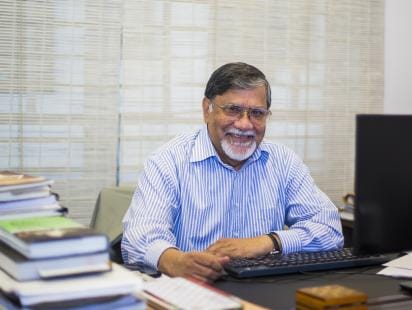
For a person who, even as a child, has always wanted to be an educator, and has been one for all his professional career, being a good teacher has remained a dream, entailed a struggle, and encouraged an (elusive) quest. It is understood that a "good teacher" is not a finished product or a final condition, but a constant process of discovery and change. I am still taking notes.
Previously, we sought to explore, and learn from, the great "masters" and icons of education – Socrates, Confucius, Chanakya, Jean Piaget, Anne Sullivan, Paulo Freire, Ralph Waldo Emerson, Maria Montessori and others. We searched for the philosophical foundations, approaches and insights that would enlighten and guide us.
Today, the question of being a "good teacher" generates a new vernacular (jargon), and a profusion of techniques, strategies and "mechanistic" pedagogical skills, which centre on new testing regimes that are standardised, information-based and memory-dependent. The "goodness" of teachers is measured and rewarded by their ability to get their students to pass these exams. William Butler Yeats (some say Plutarch) had warned us that "education is not the filling of a pail, but the lighting of a fire." Sadly, current educational practices defy that wisdom, and thereby squelch creativity and inspiration.
If there is one quality that defines great teachers, it would be "caring" – they care about what they teach, who they teach, and why they teach. The first would imply their humility and willingness to enhance their knowledge through research and scholarship; the second their commitment to the intellectual growth and betterment of their students; and third their belief in the transformational and moral power of education itself. How they teach would only form a subtext in the context of the first three conditions.
The attributes of a good teacher are universal. They must have expertise and enthusiasm about subject matter, be prepared and organised for every class, be willing to admit mistakes, consider different points of view and be flexible, and must recognise the autonomy and agency of each student in an environment where their safety, equality and sense of belongingness are guaranteed.
Teachers must also be role models in terms of maintaining personal dignity, patience, professionalism, compassion, moral authority and fairness in all matters. They must remember that they are preparing students for life not for jumping through hoops, and that inculcating a civic consciousness and an inclusive world view, provoking them to ask questions, and encouraging them to be critical thinkers, remain their most urgent challenges. As Socrates indicated, "I cannot teach anybody anything, I can only make them think." If one can do that, one is well on the way to achieving greatness as a teacher.
If there is one quality that defines great teachers, it would be "caring" – they care about what they teach, who they teach, and why they teach. The first would imply their humility and willingness to enhance their knowledge through research and scholarship; the second their commitment to the intellectual growth and betterment of their students; and third their belief in the transformational and moral power of education itself. How they teach would only form a subtext in the context of the first three conditions.
Dr Ahrar Ahmad is professor emeritus at Black Hills State University in the US, and director general of Gyantapas Abdur Razzaq Foundation in Dhaka.
***

An ideal teacher is an agent of change, transforming all who come into her/his ambit. As a sensei or guru, this "mystery" person is depicted by a long list of characteristics based on personality, knowledgeability, philosophy, professionalism, inimitability, and the like.
The ideal teacher is ultimately one's own creation, based on experiences, personal fancy, or even fantasy. For a fair number of students, interestingly, such a teacher is the one who gives good grades! This is indeed misdirected, calling for a need to recalibrate.
Paulo Freire, a Brazilian educator, philosopher, and advocate of critical pedagogy, observed, "The teacher is no longer merely the one who teaches, but one who is him/herself taught in dialogue with the students, who in turn while being taught also teach. They become jointly responsible for a process in which all grow." According to Albert Einstein, "It is the supreme art of the teacher to awaken joy in creative expression and knowledge."
While the two views focus on what a great teacher "does," it is also important to reflect on what s/he "is" – a person who spans three concentric spheres expressing her/his essence, enhancements, and the extras: the 3Es. It is the "is" that fortifies, energises, and enables the "does."
The ideal teacher is ultimately one's own creation, based on experiences, personal fancy, or even fantasy. For a fair number of students, interestingly, such a teacher is the one who gives good grades! This is indeed misdirected, calling for a need to recalibrate. Paulo Freire, a Brazilian educator, philosopher, and advocate of critical pedagogy, observed, "The teacher is no longer merely the one who teaches, but one who is him/herself taught in dialogue with the students, who in turn while being taught also teach. They become jointly responsible for a process in which all grow." According to Albert Einstein, "It is the supreme art of the teacher to awaken joy in creative expression and knowledge."
"Essence" is reflected in a teacher's expertise, intention, authenticity, engaging spirit, a sense of fairness, respect for the learner, and creativity.
"Enhancements" are embodied in preparedness, friendliness and empathy, clarity in communications, listening skills, entertaining deportment, enthusiasm, effective classroom management skills, and feedback quality.
The "extras" make it all come together through one's credentials, appearance, cleanliness, good personal hygiene, ease of making eye contact, and a clear and easy-to-follow voice. When absent, they are considerable distractors.
Interestingly, there's an intrinsic dynamism we found in a study on what students seek in their teachers as they mature. In their freshman year, the teacher's friendliness and ability to entertain, with good communication skills and enthusiasm, stand out as students prepare for a long academic journey. Sophomores value clarity, organisation, and a thought-provoking time in the classroom and beyond. Juniors seek a guide who allows freedom to explore, create, and express new ideas as they begin to strike out on their own. They also expect fairness – to be justly rewarded for their creative exploits. Seniors are looking for their lighthouse, their guru: one who is authentic and knowledgeable in her/his field, inspiring their imagination and instilling in them a desire to become trailblazers. In a profession that demands high integrity, enormous responsibility, and sustained hard work, I have tried to emulate some of my best and most inspiring teachers. In so doing, I have become a work-in-progress – learning, probing, questioning, discovering, innovating, and evolving. Along the way, I have also learnt to teach less, reach more – reach the mind, the heart, and the soul of the learner. The journey is an arduous one, sometimes thankless. For me, that journey and the inherent struggle continues.
Dr Syed Saad Andaleeb is distinguished professor emeritus at Pennsylvania State University in the US, former faculty member of the IBA, Dhaka University, and former vice-chancellor of Brac University.
***
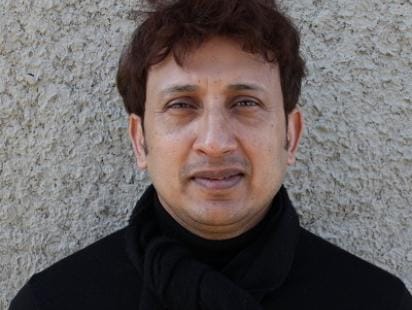
I have long fancied being a student of two great university professors: Amartya Sen (1933-) and Edward Said (1935-2003). Each of them changed, in their distinctive philosophical ways, how we think about our world and its problems. Sen encouraged us to see development not merely as economic growth but as a challenge of social justice. Said enlightened us on how the West dominates the world not necessarily through military power but through culture. I wonder how such gifted professors as Sen and Said conducted their classes, treated students in the classroom, crafted their syllabi, and graded assignments. Were they as brilliant in the classroom as they are in their books?
Having taught both in Bangladesh and the US for three decades, I am haunted and stimulated by questions such as, what traits make a university professor great? Great for whom? Students? Colleagues? University? Humanity? Is the notion of "great" culture-specific or universal? Does it hinge on their capacity to expand the boundaries of what we can know? How do we mediate between the intellectual "greatness" and classroom "effectiveness" of a university professor?
Let's picture the characteristics of an "ideal" university professor (we will call him The Professor) in Bangladesh's current higher education landscape, often plagued by an uninspiring learning environment. First, The Professor is comfortable with self-scrutiny and adept at crossing disciplinary boundaries. While an expert in her/his subject areas, s/he is relentlessly up-to-date on disciplinary challenges in that area. The Professor creates a vibrant classroom by inspiring students on how to think, not what to think. S/he makes students aware that they not only need to master the basics of their discipline, but also develop an inquisitive mind.
Having taught both in Bangladesh and the US for three decades, I am haunted and stimulated by questions such as, what traits make a university professor great? Great for whom? Students? Colleagues? University? Humanity? Is the notion of "great" culture-specific or universal? Does it hinge on their capacity to expand the boundaries of what we can know? How do we mediate between the intellectual "greatness" and classroom "effectiveness" of a university professor?
The Professor comes to class prepared, organised, and humble, and makes course contents interesting, delivered with depth, clarity, and humour. S/he treats all students respectfully irrespective of their backgrounds, does not tolerate any academic cronyism, and is gender-sensitive. S/he understands the zeitgeist, peculiarities, and the minds of current generations of social-media-conscious learners, who are often more tech-savvy than her/him.
The Professor refutes the false binary of teaching and research, and views them as mutually necessary for academic growth. S/he is collegial and willing to collaborate with colleagues even if they represent different pedagogical orientations. "My teachers at Trinity were very fine economists and each original and inspiring – in their distinct ways. But they did not agree with each other," wrote Amartya Sen in his autobiography Home in the World (2021). This type of "disagreement" drives a university's intellectual health.
The Professor explains politics to students without being political and partisan. S/he knows how to choreograph the much valorised "inspiration factor" in the classroom. The American thinker William A Ward wrote, "The mediocre teacher tells. The good teacher explains. The superior teacher demonstrates. The great teacher inspires." Given the commodification of education in Bangladeshi universities, are "inspired" students enough? Inspired to do what? Accumulate wealth in dogmatic self-interest or try to make the world a better place? A great professor makes the latter an effortlessly obvious choice.
Dr Adnan Zillur Morshed is an architect, architectural historian, urbanist, and professor. He teaches at the Catholic University of America in Washington, DC, and serves as the executive director of the Centre for Inclusive Architecture and Urbanism at Brac University.
***

If you're reading this, you're probably also thinking: Who was my favourite teacher? If you were really lucky, your heart must be warming at the thought of this great teacher!
A great teacher inspires her/his students, builds confidence in their abilities and often lights a fire in their hearts such that it brightens the entire world.
A teacher is a lot of things: organised yet flexible, disciplined yet empathic, a mentor yet a friend; s/he has the knowledge, yet s/he challenges the pupil to seek it for themselves; s/he is fluent in and uses educational technology, and yet alerts students that the technology is as good as the learner her/himself. A teacher is all these and a lot more.
Les Brown is a world-renowned American motivational speaker, mesmerising in his ability to inspire millions into action and to help overcome odds. Born in an abandoned house, he struggled to survive and was a mediocre student at school. He had an exceptionally bright twin brother; so, the classmates nicknamed him "DT" – the "dumb twin."
Great teachers inspire like no one else. They are special because they stand guard between the safe space of home and the brutal outside world. Great teachers see potential in us that others, even we ourselves, can't see. They seem to come along at just the right moment when we need them the most. Above all, great teachers give us the courage to find our own way to realise that nothing is impossible, if we just put our minds to it. And that's a great teacher.
One day, a teacher asked Les to come to the board and solve a problem. Les refused. "I can't,' he said. The teacher encouragingly said, "Of course you can." "But I can't," Les insisted. "I'm mentally handicapped." The classmates erupted in laughter, but the teacher walked over, looked him straight in the eye and said, "Don't ever say that again." Something moved inside the boy and he never forgot those words. Throughout the rest of his life, Les overcame incredible odds, thanks to the trust and inspiration of that teacher, and embodied the phrase he became famous for: You have greatness within you!
Actress Emily Blunt stuttered as a child; Maya Angelou was mute after being abused as a child, and in fourth grade, Bill Gates couldn't say a word in the class. Each was encouraged to become who they are today by an encouraging teacher.
While there are some excellent teachers in our country, the majority are no good primarily because they lack training. Great teachers are trained and not always born. All teachers, especially primary level ones, must be trained to become inspiring and challenging.
Great teachers inspire like no one else. They are special because they stand guard between the safe space of home and the brutal outside world. Great teachers see potential in us that others, even we ourselves, can't see. They seem to come along at just the right moment when we need them the most. Above all, great teachers give us the courage to find our own way to realise that nothing is impossible, if we just put our minds to it.
And that's a great teacher.
Dr Halimur R Khan is a university professor and can be reached at halimurkhan@post.harvard.edu






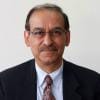
 For all latest news, follow The Daily Star's Google News channel.
For all latest news, follow The Daily Star's Google News channel. 
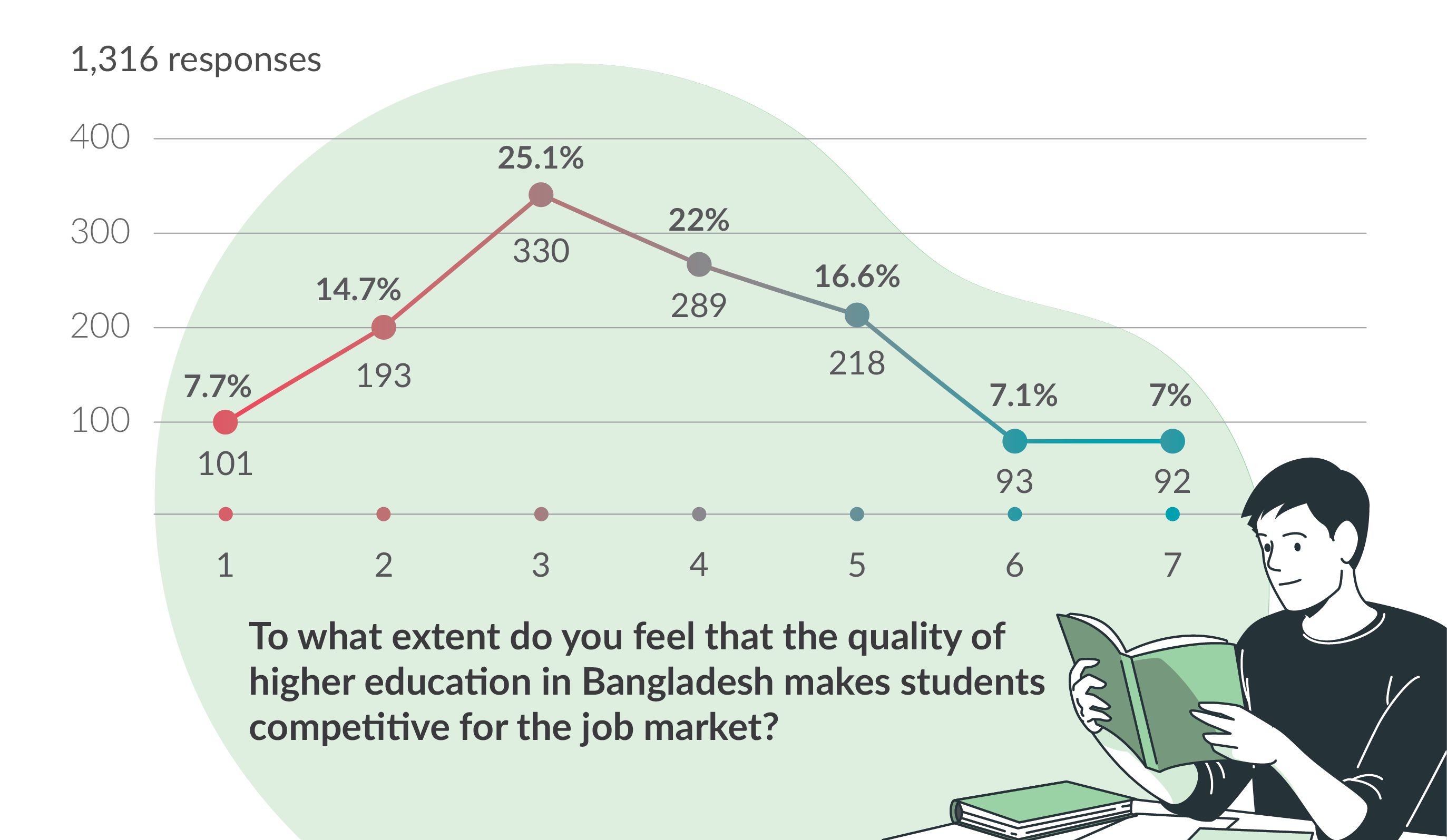

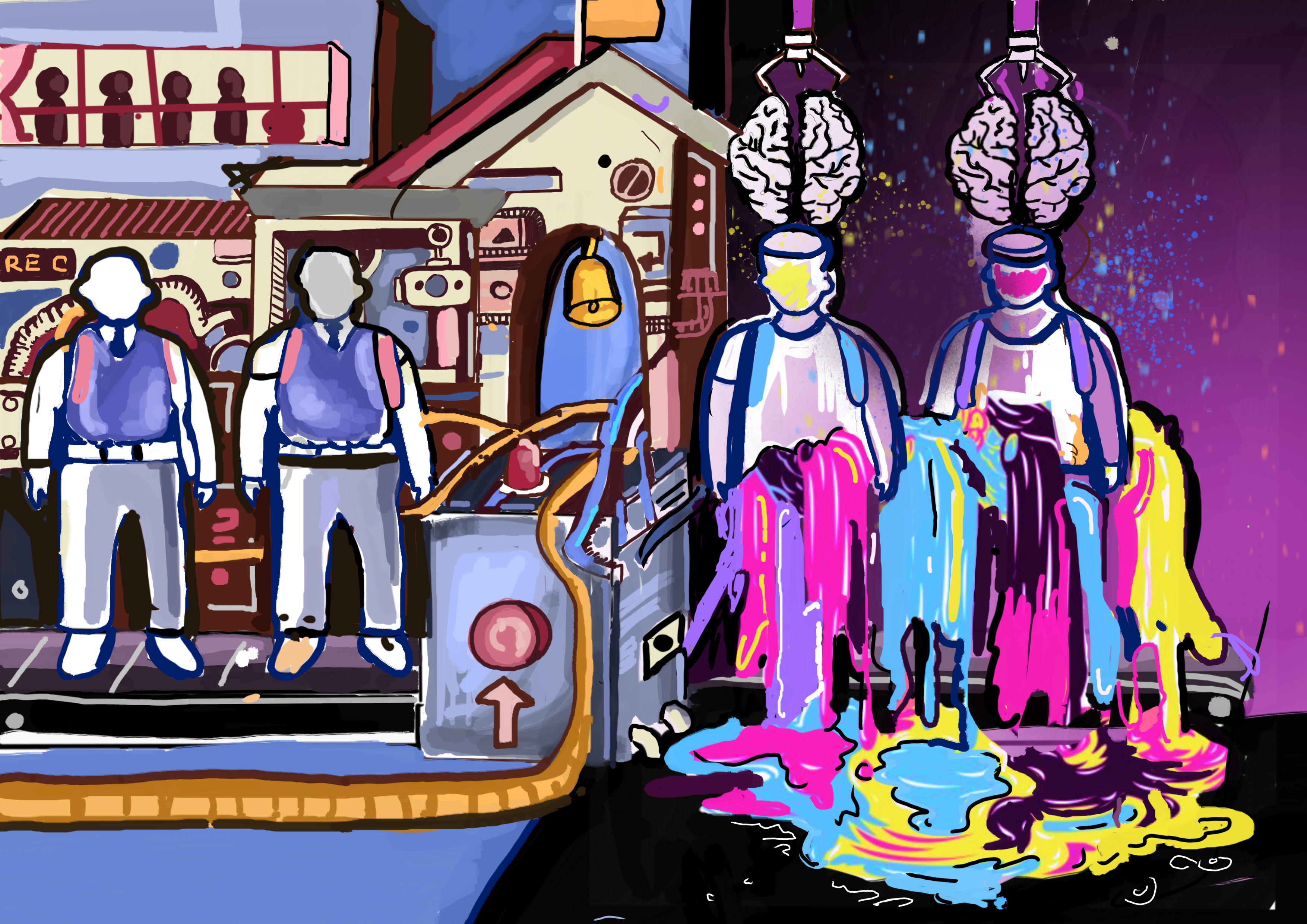

Comments